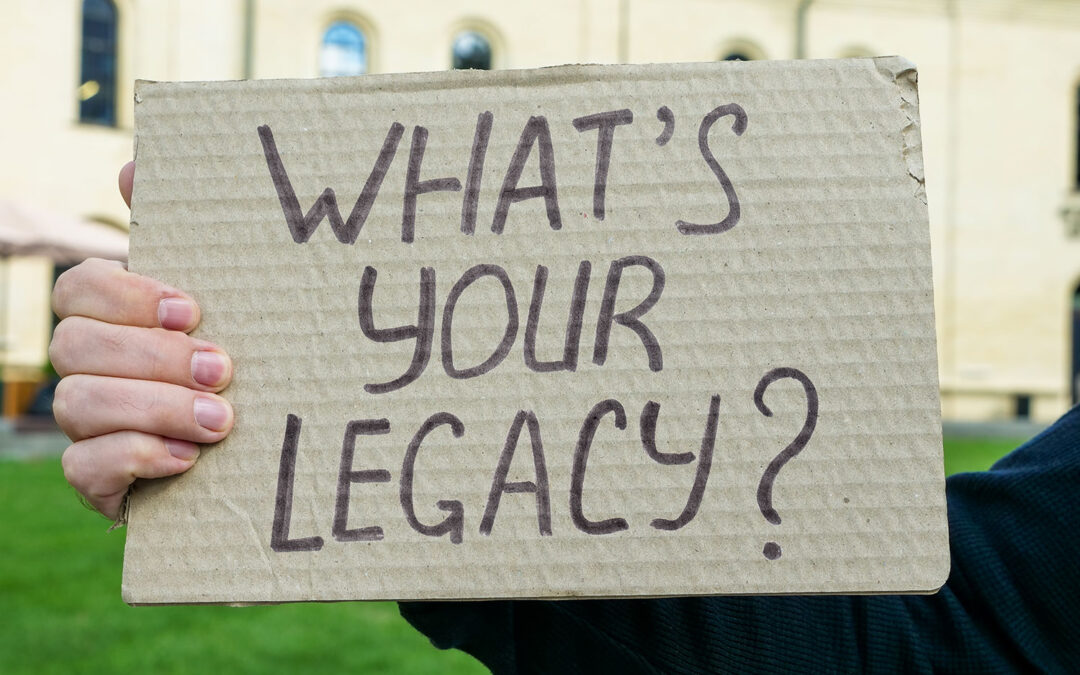The average person can expect to spend 90,000 hours or more working during their career — which is a staggering number when you stop to think about it. A bigger question though is, “What do you have to show for it when you hit that final mark?”
As a number of our clients are inching closer and closer to retirement, that question keeps surfacing. They no longer care about their next promotion or raise nearly as much as they care about what meaning they are going to leave behind, and if they are going to have a good feeling as they ride away into the post-job sunset.
As we’ve talked with people facing this question, the concept of Career Legacy emerges. Here are some of the key topics that we’ve helped clients work through to help more clearly define their own career legacy — and what to accomplish before retirement.
ONE: Taking a Realistic Look in Your Career “Mirror”
Much like looking in a real mirror at all of your physical attributes (both the good and the bad), a career mirror look is walking through how your past has shaped the present, and what you can learn from both the successes and failures that got you to this moment. Doing so honestly is the only way to get your true picture.
- When you first started your career, where did you see yourself in 5 years, 10 years, 20 years?
- What changed your thinking? Or what actions did you take that put you where you are now?
- How did your successes/failures shape the person/leader you are now?
- What could you do differently in the time remaining in your career?
TWO: Assessing Your Knowledge
Most people severely underestimate their breadth of knowledge — in general, and in specific detailed areas. This can cover anything from being an excellent meeting facilitator, to knowing all of the technical details of a specific technology stack. Uncovering what you know, and what you are really good at is critical to shaping your final Career Legacy.
- What are your unique talents? (If unsure, ask your colleagues what you are really good at doing in the workplace.)
- What industry knowledge comes easy to you?
- What information do you have at your fingertips that you can share with others?
- Where do you have a desire to learn more (areas that are not your expertise today)?
THREE: Determining Your Risk and Decision Making Profile
Just like assessing one’s knowledge, most people don’t realize how they have made decisions and taken risks in the past has impacted their career to date. By digging into and learning from these facets of yourself, you can better determine how to apply that risk and decision profile (and just maybe get out of your comfort zone) to plan your legacy.
- On a scale of 1-5, how risky has your behavior been in your career, with 1 representing not taking very many risks, and 5 representing taking a lot of risks?
- How did your career risks stack up? How often did those risks return success, and how often did they fail?
- How comfortable are you at dealing with risk (future success and potential failure)?
FOUR: Knowing Where You Are Headed
Sometimes organization and planning shape a person’s career path, and other times sheer good or bad luck and timing play a key role. No matter how you have arrived at your career present, talking out loud about where you want to end up (and why) at the end of your career can make sure that you keep that goal in mind, and have an action plan to get there.
- What do you still want to accomplish before you retire?
- What is your vision for retirement? (Where will you be spending your time?)
- What knowledge/experiences/expertise do you want to leave behind for future work generations?
FIVE: Understanding Your True Motivation
For some, leading and guiding others is more important than all other factors. For others, making sure there is the right pot of money to enjoy retirement years beats any other consideration. By evaluating those factors that are boosting and zapping your motivation now, you can determine how to ride the right motivation wave into the future.
- What is keeping you from retiring right now?
- How excited are you when you think about retirement?
- When people see your name, what do you want them to remember (if anything)?
SIX: Sharing Your Story
While this might seem self-serving, there is significant value in packaging up your wisdom and experience for others to learn. Even honesty about past failures can turn into invaluable insights, so that others can avoid those same mistakes. Reflect upon the insights you gathered above. Make a list of what you want to share. Then you can determine how to best share those insights. This could be through a charitable organization, a company that will continue on without you, or even sharing your knowledge through mentoring, volunteering, and recording options.
These are just a few of the areas to probe and discover who you are today, and who you can be ideally in the rest of your career. We encourage you to think through these factors and do an honest assessment of who you are, and where you want to end up, by writing down answers to all six categories above.
For those that want to explore your Career Legacy on a more formal basis, don’t hesitate to reach out to Corporate Path Leadership directly. We’re happy to work with you to create a formal Career Legacy report and action plan.
Contact Us Today
We make it easy to jump start success. Simply contact us and share your current team challenge or need, and we’ll respond with program ideas to innovate your team performance.

